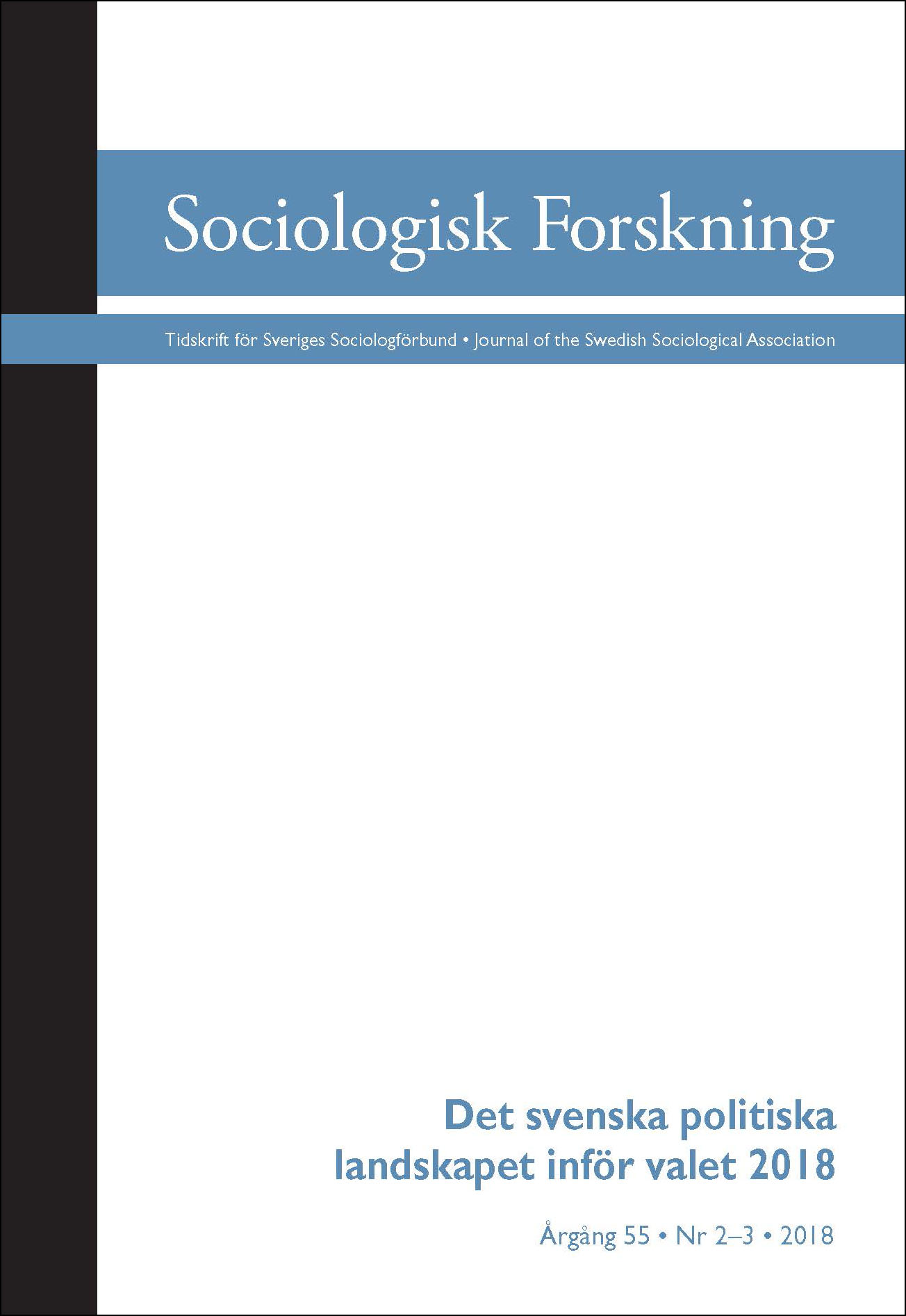The institutionalization of a new social cleavage
Ideological influences, main reforms and social inequalityoutcomes of “the new work strategy”
DOI:
https://doi.org/10.37062/sf.55.18188Keywords:
the new work strategy, Sweden, de-universalization, outsiderhood, work-first, consolidation stateAbstract
The objective of this article is to analyse the ideological influences, main reforms and social inequality outcomes of “the new work strategy”, i.e. the former Swedish centre-right Alliance government’s work-first approach. By studying government bills and reports, official statistics, and research on welfare and labour market policies, discourses, policy measures and their outcomes have been analysed. The main conclusion is that Sweden, the former prototypical “social democratic” welfare state, has adopted a new institutional framework for social protection that we call a “work-first, consolidation state”. The reforms aimed at shrinking the welfare state were implemented by strengthening activation principles in social protection systems as well as a politics of lowering taxes, which has institutionalized a new social cleavage in Swedish society and resulted in a massive redistribution from the public sector to the private sector. We also discuss how the transformation of labour income taxes and social protection systems was legitimized by the Alliance’s discourse on “outsiderhood”, and one ideological influence is located in American discourses of the underclass.
Downloads
Published
How to Cite
Issue
Section
License
All content in Sociologisk Forskning is published with immediate open access, under the Creative Commons license CC BY-NC-ND 4.0.
All content may be read, downloaded, shared and printed for non-commercial purposes, free and without fees. Contents may not be altered. When content is reused, author, source and a link to the copyright licence must be provided. The author retains copyright to their content. No publication fees are charged.





